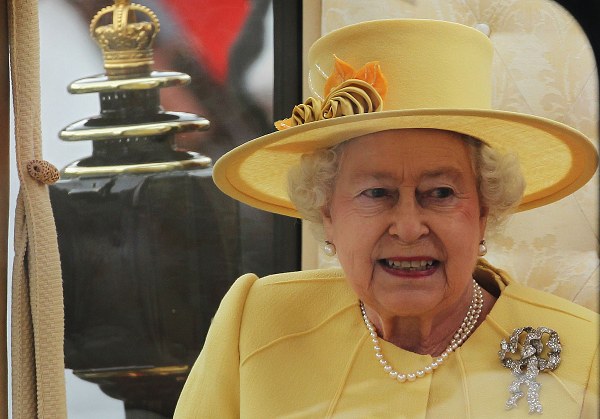Friday’s royal wedding in London clearly demonstrated that for a great many people in the modern world monarchy retains a magical allure. In England there was no doubting the passion of the massive crowds that lined the capital’s streets. In Australia there has been speculation that the wedding has set the republican movement back by years. There are debates about how many people actually watched the wedding (I did) but by any measure it was a media moment that captured people’s imagination in many parts of the world.
Royalists in Thailand will be encouraged by the international out-pouring of affection for the British monarchy. And many, no doubt, were delighted by the colour of the queen’s outfit. For Thailand’s abundant royal watchers this was a genuine moment of celebration.
But the favourable light currently shining on the British royals should also prompt some serious reflection in Thailand. The British royal family does not need to hide behind draconian laws restricting free speech. Royal affection for Queen Elizabeth and her sprawling and undisciplined family is what might be called “voluntary affection”. It is warts-and-all affection. It persists, and occasionally even flourishes, in a context were everyone can speak freely about royal feats and failings. Public commentary on the British royals’ private scandals and public adventures is inescapable.
This freedom is taken very seriously indeed. Like many other Australians I was disappointed that the Australian Broadcasting Commission (ABC) was, at the last minute, contractually prevented from broadcasting (on one of its secondary channels) a satirical commentary of the royal wedding. The commentary was to be provided by The Chaser, a controversial outfit in Australia, specialising in undergraduate stunts and irreverent satire. Despite the ban, some of The Chaser‘s pre-recorded skits about the royal wedding were broadcast. These took royal commentary in Australia to whole new level. One skit (based on The King’s Speech) featured a grotesque Prince Phillip with a penchant for racist and sexist quips. Another parodied Elton John and his musical tribute to the late Princess Diana. This musical segment also speculated about the parentage of Prince Harry. And one extraordinary skit provided an animated guide to the royal consummation, complete with a swan to be called upon in the event of princely erectile dysfunction.
Many will consider The Chaser’s take on the British royalty to be highly offensive. Others will love it. It’s a personal judgement, not a matter of national security. Those operating on the fringe, like The Chaser, help to maintain a domain of free speech in which others, most of whom prefer less provocative commentary, can freely roam.
This is the domain of public discourse in which the “voluntary affection” for Queen Elizabeth and her family has taken root.
Whether or not Thailand will be able to make a transition to a system of “voluntary affection” remains to be seen. At present, with a spate of lese majeste arrests, the trend is in the opposite direction, towards reinforcing a regime of affection by fiat. “Voluntary affection” would be a big risk for King Vajiralongkorn, but with an interconnected public sphere that is now impossible to control, it may well be the only viable option available to Thailand’s future royals.
 Facebook
Facebook  Twitter
Twitter  Soundcloud
Soundcloud  Youtube
Youtube  Rss
Rss 